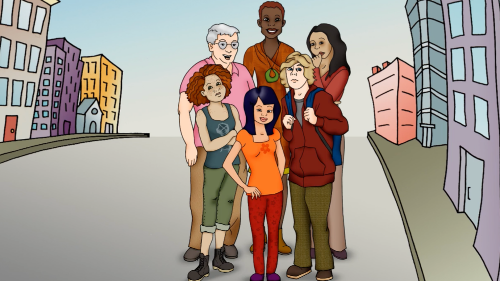Youth Development Professionals
Positive youth development (PYD) is an approach that is ideally adopted by communities and organizations — it is not limited to programs. However, it is often best understood, practiced, and advocated by youth development professionals: people who work directly with youth.
Youth development professionals and volunteers may be responsible for:
- Nurturing developmental relationships with youth
- Creating positive environments and ensuring the program setting is inclusive
- Delivering well-designed youth development programs that point toward positive outcomes
- Advocating and practicing meaningful youth engagement
Supervision
None of this can be accomplished without training and support. Supervisors play an essential role in advocating for their staff as well as for the PYD approach. We know that young program participants do best when they are respected, know themselves to be valued, and are both challenged and supported to stretch and grow. The same is true for adults, and youth development professionals are no exception.
To succeed with young people, youth workers need organizational policies that embrace the PYD approach. If an organization seeks to empower youth, it should also empower its staff. Along with fair compensation and labor practices, youth work professionals need a sense of community, support for working through challenges, opportunities to learn, meaningful ways to contribute to organizational policies, and people who care about them within the work environment.
Resources for Youth Development Professionals and Supervisors
Competencies in Youth Work
What skills, knowledge, and attributes do youth development professionals and volunteers need to be effective?
Developmental Relationships
We have known for a long time that relationships are at the heart of successful youth work. It is through relationships that we engage young people and help them grow. What do relationships that foster development look like?
Facilitation Tips
For youth work professionals, delivering structured program activities and facilitating groups and workshops are common tasks. To help you do this effectively, we offer tips and resources.
Teaching Techniques
Brainstorming, small group activities, and role playing are a few of the most common pedagogical techniques used in youth programming. Watch these videos to see examples of both weak and strong facilitation.
Self-Care for Youth Development Professionals
Youth work is a profession of the heart. Most people come into the field because they are dedicated to and passionate about making the lives of young people better. Those same motivations make self-care an important topic.
ACT for Youth Resources for Professional Development
Positive Youth Development 101: A Training Manual
The Positive Youth Development 101 curriculum offers an orientation to the youth development approach for professionals new to the field of youth work. Use this free curriculum — one of ACT for Youth's most popular resources — to provide professional development to new youth workers, supervisors and administrators, funders, and community volunteers. The 12-hour curriculum is structured in five distinct sections, each of which may be presented as a stand-alone workshop.
Positive Youth Development (PYD) 101 Online Courses
PYD 101 Online is a series of short courses intended to introduce PYD to new youth work professionals, volunteers, and advocates. These stand-alone, interactive courses may be taken in any order. Each course can be completed in about 30 minutes.
Creating Inclusive Program Environments for Youth with Different Abilities: A Training Manual
Young people with learning disabilities, ADHD, autism spectrum disorder, or trauma do not always disclose these conditions in program settings. Fortunately, even when facilitators lack this personal information about participants, there are ways to make programs more inclusive. This curriculum aims to provide youth development professionals with information, practices, and activities that will help them promote inclusion and engagement for all young people.
Facilitating Programs for Youth: A Training Manual
How can we make our workshops, presentations, and programs for youth more engaging and effective? The Facilitating Programs for Youth curriculum is designed to help youth development professionals and volunteers build their skills and focus on what works for young participants.
Resources for Youth Engagement
Youth Engagement
Meaningful youth engagement will take you miles toward the positive outcomes you seek. Here you will find resources for:
Resources for Program Planning
Youth Development Program Toolkit
Good programs don't just happen. Here, ACT for Youth collects resources to help youth development professionals and organizations think through and plan for effective programming. Find activity toolkits, tools for developing logic models and identifying evidence-based programs, and resources to help you create inclusive environments and develop trauma-informed programming.





